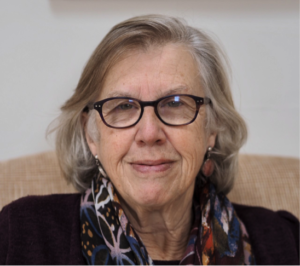The Mind in Fragments: The Neuroscientific, Developmental, and Traumatic Roots of Dissociation and Their Implications for Clinical Practice
NPSA Ireland Study Group webinar
In this talk, I highlight the life-long impact of early relational trauma on a person’s psychological and emotional development and its role in creating dissociation. I discuss the differing views in the psychotherapy world over the relative importance of dissociation and repression and explore the historical roots of these differing views in the fundamentally different models of the mind offered by Freud and Jung. I describe the neuroscientific basis for dissociation. I give an account of some clinical work with a dissociative patient and discuss the modifications to psychoanalytic technique that are necessary when working with severely dissociative patients.
A good therapeutic alliance has been found to be the best predictor of outcome in psychotherapy, but psychotherapists also need to develop an understanding of the mechanisms by which that alliance is created and I discuss the research that suggests these are essentially based on psychotherapy as a conversation, in which turn-taking, rupture and repair, and perspective taking are the intersubjective tools that help to build the therapeutic alliance. These processes can be the focus for further study into the mechanisms by which psychotherapy is helpful or harmful. The neuroscience research that supports this model is summarized.
Registration is now closed.
Please click here to view the video of this event.
If you have any questions please email: neuropsaireland@gmail.com
Bio
 Dr Jean Knox is a psychiatrist and a Jungian analyst with a relational and attachment-based approach. Her PhD on the effect of emotion on memory and perception was at the Psychoanalysis Unit at UCL, supervised by Professor Peter Fonagy. She is Honorary Associate Professor at the University of Exeter, for the Doctorate in Clinical Practice and the Professional Qualifying Training in Psychodynamic and Psychoanalytic Psychotherapy. She is a Senior Member and Trustee of the British Psychotherapy Foundation and Ethics Advisor to the HelpHub, a counselling charity offering Covid- related support. She is a former member of the Executive Committee of the International Attachment Network and has been Editor-in -Chief of the Journal of Analytical Psychology. She has written and taught extensively on the relevance of research in attachment theory and developmental neuroscience to psychotherapy theory and practice. Her book Archetype, Attachment, Analysis: Jungian Psychology and the Emergent Mind was published in 2003. Her book Self-Agency in Psychotherapy: Attachment, Autonomy and Intimacy was published in December 2011, in the WW Norton Interpersonal Neurobiology series.
Dr Jean Knox is a psychiatrist and a Jungian analyst with a relational and attachment-based approach. Her PhD on the effect of emotion on memory and perception was at the Psychoanalysis Unit at UCL, supervised by Professor Peter Fonagy. She is Honorary Associate Professor at the University of Exeter, for the Doctorate in Clinical Practice and the Professional Qualifying Training in Psychodynamic and Psychoanalytic Psychotherapy. She is a Senior Member and Trustee of the British Psychotherapy Foundation and Ethics Advisor to the HelpHub, a counselling charity offering Covid- related support. She is a former member of the Executive Committee of the International Attachment Network and has been Editor-in -Chief of the Journal of Analytical Psychology. She has written and taught extensively on the relevance of research in attachment theory and developmental neuroscience to psychotherapy theory and practice. Her book Archetype, Attachment, Analysis: Jungian Psychology and the Emergent Mind was published in 2003. Her book Self-Agency in Psychotherapy: Attachment, Autonomy and Intimacy was published in December 2011, in the WW Norton Interpersonal Neurobiology series.